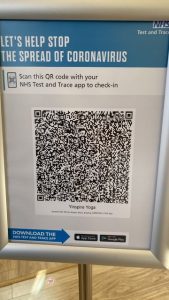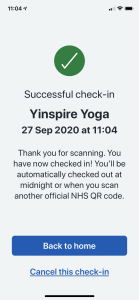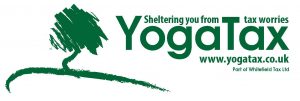 Amongst the many updates to the regulatory environment for Yoga Businesses this last week around Coronavirus were new requirements to operate Track and Trace and QR codes. Unsurprisingly they’ve caused some confusion.
Amongst the many updates to the regulatory environment for Yoga Businesses this last week around Coronavirus were new requirements to operate Track and Trace and QR codes. Unsurprisingly they’ve caused some confusion.
The Government Guidance around QR codes and Track and Trace can be read here
Basics of Track and Trace
The applicability includes:
- Indoor sport and leisure centres
- Local Authority run facilities like community centres and villages halls
- Clubs providing team sporting activities
- Facilities for use by elite and professional sportspeople (including sports stadia)
Taking a principled interpretation, it is hard to argue a Yoga Studio isn’t in this list.
The guidance also says “Places of worship, including when the venue is used for events and other community activities, are not included in these regulations but are still strongly encouraged to maintain staff, customer and visitor logs and to display an official NHS QR code poster.”
On the face of it schools and non local authority run community halls aren’t included, however there would be nothing to stop them voluntarily adopting these rules.
 Mandated businesses must:
Mandated businesses must:
- Display a QR poster – Create one here
- Collect contact details for each visitor unless they scan the QR code with the NHS app
- If the customer scans with the NHS app, the business must check their screen to confirm they have done so “Should someone choose to check in with the official NHS QR poster, a venue should check their phone screen to ensure they have successfully checked in.”
- Apparently businesses are not allowed to make scanning the QR code a precondition of entry.
The QR codes can only be scanned by the NHS app, not via the phones camera app.
The responsibilities are venue specific not user specific, so if you hire sessional space, eg in a community venue, it’s the venues responsibility to organise the QR code, but legislation suggests it’s the hirers responsibility to enforce use of it.
Certain mobile business are required to generate a QR code and make it available to customers they visit, and whilst instructors, trainers or Yoga Teachers, visiting someones home are not mentioned, close contact services including holistic therapy are. Read more on NHS FAQs
What does this mean in practice?
- If you run a Yoga studio or rent a designated room / suite for classes, then you will need to create a QR code and collect contact details for customers who don’t scan in.
- If you rent sessional facilities in a Local Authority facility, yoga studio, gym, or similar, then the landlord should generate a QR code and provide you with guidance about recording details of people who don’t scan in.
- If you rent sessional facilities in a building outside of these rules, eg a school or place of worship, or a village hall, then you would need to follow the landlords guidance on whatever rules they have put in place – you are not obliged to go further than this and create your own QR although collecting contact information would be prudent.
- If you visit people in their home for private yoga, you may be advised to create a QR code although it is unlikely a private class is “close contact” for the purposes of these rules.
Nothing stops a business going further than the requirements, eg business not on the mandated list having a QR code, or collecting additional information.
If you operate a booking system and mandate all yoga students book your classes, then you’ve probably collected the minimum information for Track and Trace, i.e. name and phone. For many of us this is good practice anyway, eg in my yoga business I have operated mandatory booking for all class places for a couple of years, collecting names, email and phone; I also collect addresses on my intake forms.
The requirement to check someone scanning the QR code has done so is problematic, as for a yoga teacher working by themselves this means positioning yourself at the venue entrance and hovering over students as they arrive. I would imagine collecting contact details another way for everyone, eg via a booking system, would be a good defence to not doing this – it’s within the spirit of what the system is trying to achieve.
Consider Data Protection issues – if you are already Collect contact details and are ICO (Information Commissioners Office) registered you probably don’t need to do much, maybe update your privacy policy although you are likely to be covered to process this information under Data Protection rules anyway. Businesses not currently collecting contact details and not registers with the ICO will need to review their Data Protection position.
What if there is an outbreak in your venue?
On the Isle of Wight we’ve had the app, and QR codes, in place for some weeks as a test.
The venue owner does not have access to details of who has scanned in, nor receive reports on numbers of scans etc. As I understand it if there was a outbreak at your venue the T&T service would contact everyone who had scanned in within a certain time frame. Whether that would be a firm direction to Isolate, or a request to contact T&T for more detailed assessment, is not clear.
Anecdotal reports around attendees in yoga classes who have tested positive over recent week suggest isolation is only required if 2m+ social distancing hasn’t been observed.
And finally…
We have prepared this guidance in good faith to help the yoga community. We’re not T&T experts – is anyone? – so please take our advice in good faith and critically assess your own position.


